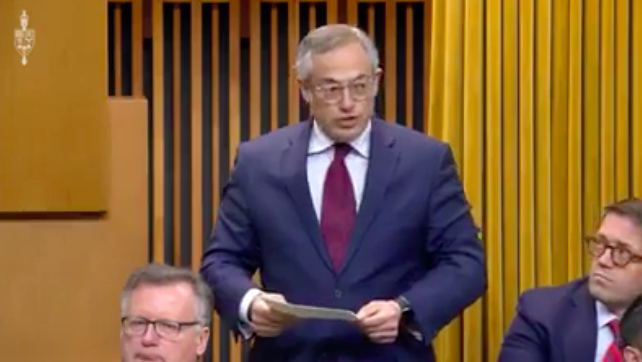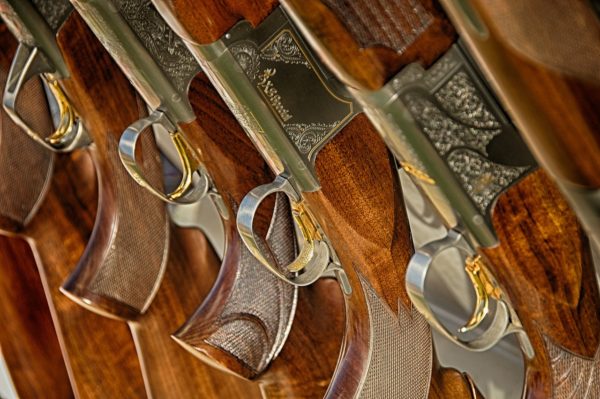I’m not sure what the Liberal-friendly version of the expression “Shots fired” is, but whatever it is, it happened last week in Question Period.
Independent Member of Parliament Tony Clement rose with a pointed question for the government, inspired by information Clement received from a source he couldn’t name.
“I am told on good authority that the prime minister has a secret plan to ban legal firearms,” Clement charged. “Apparently this plan is to be executed by cabinet directive, with no debate in Parliament. The prime minister plans to announce this gun ban at the Women Deliver conference to be held in early June in Vancouver, which New Zealand Prime Minister (Jacinda) Ardern will also attend. Could the prime minister confirm or deny this zero-accountability secret plan?”
The question was so specific that it could easily be answered with a yes or a no. But Bill Blair, the minister supposedly tasked with overhauling Canada’s gun laws and curbing organized crime, gave no such clarity.
“I want to assure the House that the government remains absolutely committed to undertaking all measures that are effective in keeping Canadians safe,” Blair said. “As I believe every member of the House would agree, there is no greater responsibility for any order of government than the safety of its citizens and the protection of its kids, and we are prepared to consider whatever measures would be effective in this regard.”
Nowhere in that mush was a direct answer either way, through Blair’s spokesperson later denied Clement’s assertion in a media statement, saying the government has not yet finalized its course of action on gun reform.
True or not, Clement’s belief is plausible, which is why it spread so rapidly through Canada’s community of gun owners, of which I’m a part.
Even if reforms are not announced on the time and date he thinks, his question reveals a troubling and often overlooked possibility—that any sweeping changes to Canada’s gun laws could happen without a parliamentary debate or vote.
With the Canadian government’s view that gun ownership is a privilege and not a right, it would be easy to restrict gun ownership under the cloak of cabinet directives rather than openly and democratically.
This is Clement’s biggest worry, he told me in an interview.
“Cabinet, by its definition, is a secretive and secret process,” he said. “Passing an order-in-council is not done in front of a committee or in front of parliament. It’s done by cabinet ministers in secret. Then Canadians are presented with fait accompli.”
The millions of lawful Canadian gun owners—from farmers to aboriginals to hunters to sport shooters—deserve a debate.
The only times the Liberals want to have such a discussion is in the wake of tragedy, when the emotional climate makes it politically difficult to defend gun ownership.
Policies like a national handgun ban or mandatory central storage are only on the table because of the Danforth Ave. shooting, despite the killer using an illegally-acquired handgun. (But hey, never let facts get in the way of a good narrative.)
Public Safety Minister Ralph Goodale even said the Christchurch mosque attacks—in New Zealand—could justify further gun control in Canada, making it entirely plausible Trudeau would announce measures at an event featuring Ardern, the Kiwi prime minister.
With merely five months until the election, and few sitting legislative days, the only way Trudeau could deliver any changes would be through cabinet fiat. Subverting parliament on contentious issues is always egregious, though it’s especially so when a leader will soon have the opportunity to seek a mandate from the voters.
Process aside, further restrictions on gun ownership in Canada will do nothing, given it’s the illegal guns that are being used so routinely in Toronto’s rising gang homicides.
Toronto Mayor John Tory fancies himself a saviour of lives with his gun amnesty program, though New Zealand’s recent dalliances reveal how fruitless these efforts are.
Only 37 of New Zealand’s 1.2 million guns were turned in under the government’s voluntary surrender program. That’s not a typo—37. These things don’t work because the few people who hand their guns over are not the ones whose gun ownership causes any problems.
Defiant as the government’s denial of Clement’s allegation is, the question still stands of why Blair himself, in the moment, didn’t unequivocally shoot down the question.
It’s possible he wasn’t involved enough in the plans to know one way or another, which wouldn’t surprise me. Also possible is that Clement revealed a previous, abandoned version of the plan. This would mean both Clement and the Prime Minister’s Office are telling the truth.
Or Blair was misrepresenting the government’s plans.
Either way, Clement may have applied the necessary heat for the government to walk this back.
This column was originally published at True North.


